 Leading Blog | Posts by Month |
 Leading Blog | Posts by Month |
01.29.07

Goldsmith's Gold: Stop Trying to Help People Who Don’t Want to Change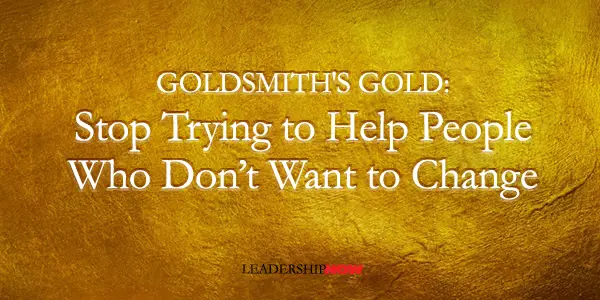
YOU can help some of the people some of the time, but you can’t help all the people all the time. Not everyone wants help. Not everyone wants to change. Some people can’t or won’t be lead. It’s a fact of life. Marshall explains, “This may sound harsh, but some people are unsalvageable. You’re only banging your head against a wall if you think you can fix them.” Some flaws can’t be coached away by any boss, especially if the following conditions exist: Stop trying to change people who don’t think they have a problem. Stop trying to change people who are pursuing the wrong strategy for the organization. If they’re going the wrong direction, all you do is help them get there faster. Stop trying to change people who should not be in their job. Move them on. Stop trying to help people who think everyone else is the problem. People like this will never give up on their near-religious belief that any failure is someone else’s fault. This is adapted from What Got You Here Won't Get You There by Marshall Goldsmith. 
Posted by Michael McKinney at 07:59 AM
01.26.07

Connections: It’s a Lego World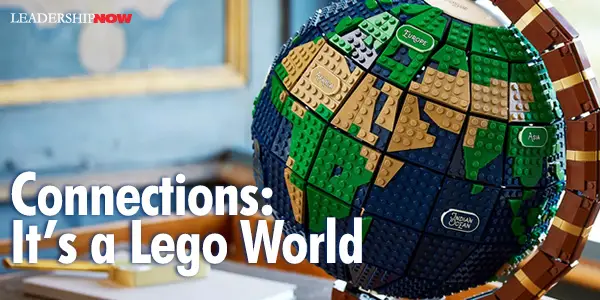
“…The management world is only flat if you take an industrial perspective. If you just want the lowest cost, the capabilities exist virtually everyplace in the world to get the lowest cost. But if cost is not your only concern and you recognize that the industrial world has given way to an information and knowledge driven world, you will see that Indiana and India are not interchangeable. “In the twenty-first century, businesses exist in a Lego world. Companies are built out of Legos: People Legos, Product Legos, Idea Legos, and Real Estate Legos. And these aren't just ordinary Legos; they pass through walls and geographic boundaries, and they are transparent. Everything is visible to everyone all the time. Designing and connecting the pieces is at least as important as providing them. It's crucial to remember that these aren't simply pieces of plastic or metal—they are not just factories or warehouses. They are also humans who program computers, train newcomers, and think about innovation as they prowl malls, libraries, and parks, coming up with new products. These pieces are constantly being put together, pulled apart, and re-assembled. >“My company's Legos—manufacturing, distribution, skills, and services—cannot be unique unto themselves; they have to connect with your company's Legos. I can build my company, but in a year or two, my CEO and I might have to tear down and rebuild part of it in a totally different configuration, perhaps with fewer American People Legos and more of your company's People Legos in Sweden or South Africa. Leading visionaries in business are expressing the same notion. Ray Ozzie, Microsoft's chief software architect, recently explained: 'What's more important than any one individual Lego is that you know how to build with all the Legos. With everything out there, all those programs and applications and accessories, what's important is the ability to find a way to connect fragmented software pieces “…There are no competitors. Let me repeat that, because it's something that Peter Drucker loved to say: 'There are no longer competitors, just better solutions and more choices that can be put together in more ways.'” 
Posted by Michael McKinney at 07:23 AM
01.24.07

5 Leadership Lessons from Robin Sharma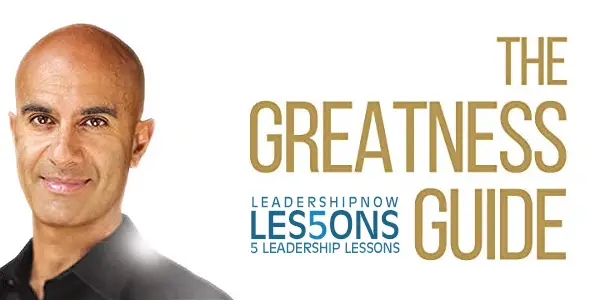
THESE five lessons are from The Greatness Guide by speaker and leadership coach, Robin Sharma.

Posted by Michael McKinney at 08:59 AM
01.23.07

The Adaptive Leadership of Debra Cafaro She also noted that you “have to be willing to temporarily upset a lot of people in order to save the company. You have to withstand a lot of conflict, histrionics, screaming at meetings and toughness on all sides.”
Posted by Michael McKinney at 12:13 PM
01.22.07

Goldsmith's Gold: Feedforward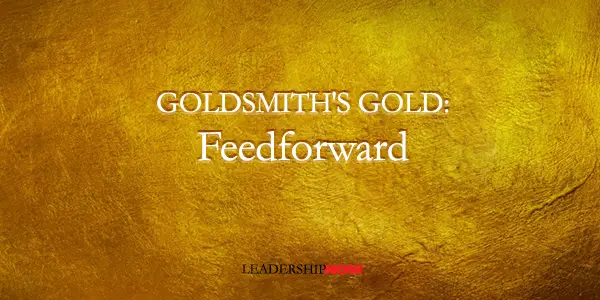
MARSHALL GOLDSMITH introduces a concept called feedforward in his book, What Got You Here Won't Get You There. Essentially it is a refocusing of the practice of feedback. Instead of, “What did I do wrong?” feedforward asks, “I am trying to improve in this area. What kinds of things might I do in the future to improve in this area?” It works because, while they don’t particularly like hearing criticism, successful people love getting ideas for the future. If changing a certain type of behavior is important to them, they will gobble up any ideas that are aimed at changing that behavior. Marshall adds, “Feedforward forces us to ask—and in doing so, we enlarge our universe of people with useful ideas. Asking, of course, gives the other person a license to answer. I cannot overestimate how valuable this license can be. I’m sure that all of us are surrounded by smart well-meaning friends who “understand” us better than we “understand” ourselves. I suspect they would love to help us; most people like to help others. But they hold back because they think it is rude or intrusive to try to help someone who has not asked for our assistance. Asking solves this. This is adapted from What Got You Here Won't Get You There by Marshall Goldsmith. 
Posted by Michael McKinney at 12:08 AM
01.19.07

Bob Nardelli: “I want an autopsy!” BW continues, “Nardelli alienated customers just as thoroughly as he did employees” and his “data-driven, in-your-face management style grated on many seasoned executives, resulting in a massive turnover in Home Depot's upper ranks.” Bruce Nussbaum, on his Business Week Innovation blog, wrote a post on “why command and control is so bad.” Bob Sutton pointed out on his blog that “a numbers-based and quality focused organization need not be top-down, where bosses use numbers to lord over and push around their underlings.” While all of this is true, a numbers-based and quality focused organization may also be top down and still place an emphasis on people and with longer-term results. These aren’t either/or propositions. It requires a different kind of leader. Jack Welch is reported by Patricia Seller in a June 9, 2002 article in Fortune, to have called Nardelli the “best operating executive I’ve ever seen”, but in the end he “had to go with his gut” in bypassing Nardelli for the top spot at GE. Nardelli understandably stunned and hurt, demanded, “I want an autopsy!” Maybe even Jack Welch saw something beyond the numbers. Perhaps at Home Depot, Nardelli finally got his autopsy. Mr. Nardelli’s problem seems to be one of attitude. If you have respect for people, if you have their best interests at heart, you can still bring in the numbers. A leader’s people and political role are spotlighted now more than ever. Mr. Nardelli ultimately failed in this arena. "I used to play football," Nardelli said when asked about the challenges of being a public company CEO today. "In football, you always know the score. Now, it's like we are ice-skating, and you've got a bunch of judges on the sideline shouting out the scores." Let’s hope while Mr. Nardelli is fielding calls for his next job, he takes time to reflect on attitude. While Six Sigma is a valuable process tool, it can and should work within a framework of respect for people. Leadership is the same as it ever was and it's still about people.
Posted by Michael McKinney at 12:48 AM

Six Sigma Leadership Six Sigma expert Peter Pande writes in his book, The Six Sigma Leader, “Studies have repeatedly shown that the high failure rate of many promising leaders is largely due to an over-reliance on a limited set of capabilities. Many times leaders are promoted because of a strong record of achievement, only to derail later because of their inability to adapt. For example, an individual may be good at demanding high performance from his or her followers, or have strong technical ability. However, those strengths are not sufficient when, for example, big-picture thinking or relationship building are also essential to success. To prepare yourself and others for growing challenges, you need the clarity of thought and flexibility to understand your own weaknesses and develop new talents.” Six Sigma expert Peter Pande writes in his book, The Six Sigma Leader, “Studies have repeatedly shown that the high failure rate of many promising leaders is largely due to an over-reliance on a limited set of capabilities. Many times leaders are promoted because of a strong record of achievement, only to derail later because of their inability to adapt. For example, an individual may be good at demanding high performance from his or her followers, or have strong technical ability. However, those strengths are not sufficient when, for example, big-picture thinking or relationship building are also essential to success. To prepare yourself and others for growing challenges, you need the clarity of thought and flexibility to understand your own weaknesses and develop new talents.”
Posted by Michael McKinney at 12:42 AM
01.18.07

The First Global NeuroLeadership Summit The First Global NeuroLeadership Summit is taking place May 14-16 in Asolo, Italy. What is NeuroLeadership? NeuroLeadership is a term coined in 2006 by David Rock and Dr. Jeffrey Schwartz. It is the integration of neuroscience into the business world. The Summit is the brainchild of David Rock, an international leadership consultant and author of Quiet Leadership (a best book of 2006 selection), who together with neuroscientist Dr Jeffrey Schwartz is bringing together the speakers and the program. For three days, world-renowned experts in both neuroscience and leadership will gather with a select group of 40 guests, on top of a mountain in spectacular Northern Italy. Together they will explore some of today’s biggest workplace challenges through the eyes of a neuroscientist, and build the framework for a new domain of knowledge: NeuroLeadership. You can find their ongoing events and conferences here: NeuroLeadership Learning Events
Posted by Michael McKinney at 08:35 AM
01.17.07

Poor Leadership Is Costing UK Business £6+ Billion per YearA new study released this week reveals that UK business is suffering from the poor leadership skills of Britain’s bosses. The survey shows that business leaders fail across the board at setting clear objectives, motivating staff and weeding out poor performers. The study commissioned by Ros Taylor Ltd, a leading firm of Chartered Psychologists, asked over 1500 people from different sized organisations throughout the UK about leadership in the work place. They found:
Taylor went on: “Think about it. Many line managers, heads of department and directors are on a minimum £100K+ pa. These people represent something of the order of a £200K+ investment for the company. As a psychologist, I am intrigued that companies who bend over backwards to “think smart” ignore this area. It’s the “one thing” they could do that would deliver tangible results - and yet the vast majority just don’t do it. They probably think that in the old cliché “leaders are born, not made” and yet in our business we disprove that on an almost daily basis. They can’t leave the innovation and blue sky thinking that comes from truly inspirational leadership to chance – or for that matter to a quirk of genetics – it’s odd to think that multinational companies who factor the canteen subsidy into the cost of a sausage roll don’t have a “leadership development plan.”
Posted by Michael McKinney at 08:37 AM
01.15.07

Martin Luther King Jr. and Adaptive Change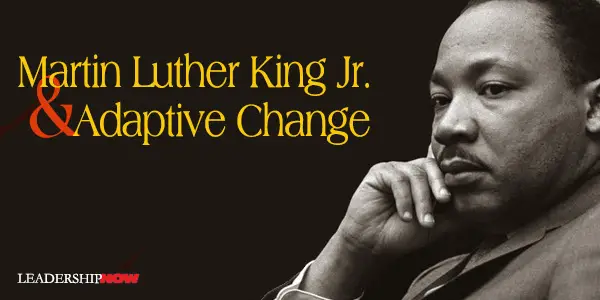
W In Leadership on the Line, authors Ronald Heifetz and Marty Linsky explain, “To sustain momentum through a period of difficult change, you have to find ways to remind people of the orienting value—the positive vision—that makes the current angst worthwhile.”  “As you catalyze change, you can help ensure that you do not become a lightning rod for the conflict by making the vision more tangible, reminding people of the values they are fighting for, and showing them how the future might look. By answering, in every possible way, the “why” question, you increase people’s willingness to endure the hardships that come with the journey to a better place.” This is what Martin Luther King Jr.’s accomplished in his famous I Have a Dream speech. He painted a tangible vision when he said: I have a dream that my four little children will one day live in a nation where they will not be judged by the color of their skin but by the content of their character. I have a dream today. Interestingly enough, the civil rights speakers who were to speak on that day—August 28, 1963—argued amongst themselves who would speak when and for how long.
Posted by Michael McKinney at 07:11 AM
01.12.07

Goldsmith's Gold: "You asked for my opinion and now you're arguing with me?"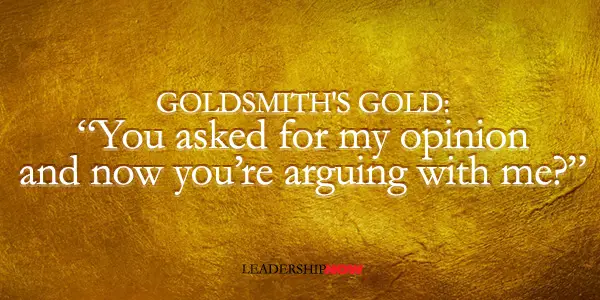
WHEN we ask a friend, "What do you think I should do in this situation?" we are setting up the expectation that we want an answer—and that we will give the answer full consideration and quite possibly use it. We are not announcing that we're initiating an Stop doing that. Treat every piece of advice as a gift or a compliment and simply say, "Thank you." No one expects you to act on every piece of advice. If you learn to listen—and act on the advice that makes sense—the people around you will be thrilled. Additionally, he cautions that it is not appropriate to pass judgments on people's opinions when we specifically ask them to give it to us. Naturally, we don’t like to be critiqued, but “the only sure thing that comes out of passing judgment on people’s efforts to help us is that they won’t help us again…. No matter what you privately think of the suggestion, you must keep your thoughts to yourself, hear the person out, and say, ‘Thank you.’” Solid advice. This is adapted from What Got You Here Won't Get You There by Marshall Goldsmith. 
Posted by Michael McKinney at 09:38 AM
01.10.07

Growth: Moving to the Next Level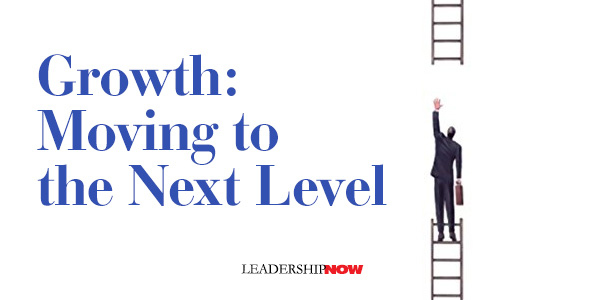
You think you have all the answers, but others see it as arrogance. You think you’re contributing to a situation with helpful comments, but others see it as butting in. You think you’re delegating effectively, but others see it as shirking responsibilities. You think you’re holding your tongue, but others see it as unresponsiveness. You think you’re letting people think for themselves, but others see it as ignoring them. These are the kinds of things that are holding you back. Executive coach Marshall Goldsmith, pulls no punches in his new book, What Got You Here Won't Get You There. This book is for those who really want to change. It’s for those who really want to see things for what they are and do something about it. There is something you'll recognize about yourself in this book. We all hold superstitious beliefs—a mistaken belief that a specific activity followed by positive reinforcement is actually the cause of that positive reinforcement. Superstitions based on the mistaken idea that because I behave this way, I achieve results. Therefore, I must be achieving results because I behave this way. These superstitions make it hard for us to change. Goldsmith writes that this is the paradox of success: The beliefs that carried us here may be holding us back in our quest to go there.

Posted by Michael McKinney at 07:55 AM
01.08.07

How to Spot the Future Leaders of Your Business
RAM CHARAN lists in his book, Know How, eleven criteria for spotting future leaders in your organization. He suggests that you repeatedly practice making judgments of other people and reflect on why you might have missed in some cases. Did the individual have the potential you saw in them? How good are your judgments compared to others judgments on the same individual?
Posted by Michael McKinney at 08:39 AM
01.05.07

Caught in a Dilemma: Hard Choices The Book of Hard Choices is a book about integrity. We are reminded that integrity is one of those words that doesn’t mean a thing until it becomes behavior. And it’s all the more important in difficult and challenging circumstances. Eventually, your integrity will be put to the test.
The Book of Hard Choices is a book about integrity. We are reminded that integrity is one of those words that doesn’t mean a thing until it becomes behavior. And it’s all the more important in difficult and challenging circumstances. Eventually, your integrity will be put to the test.
The authors James Autry and Peter Roy have found that the really tough choices are not about money but relationships. And the little everyday stuff is just as important as the big dilemmas. They write, “Once you recognize that your integrity is on the line every day, then your work life takes on a different meaning.” As organizations have pressured their workers to work harder and work longer, they have helped create an atmosphere in which the concepts of civility and cooperation are lost in the hurry-scurry of a high-pressure workplace. Using a series of 23 stories the authors offer up hard choices that we any one of us could face. For example, do you go for the quick fix or teach values first? When the pressure is on to turn things around, the temptation is to skip over a lot of the “pleasantries.” In their example, the CEO said that first, you need to lay out the ground rules and be consistent. “It always starts with respect, and that means respect even under pressure. It takes more time to treat people with respect, and when you are under pressure, it seems counterintuitive to insist on something that takes more time. But without the value of respect, nothing else works. He continues, “Of course you can always try the quick fix, but most of these companies didn’t get into a mess overnight. You can apply the Band-Aid if you’re just planning to flip the business, but I’m not looking to do that. I’m looking to provide a foundation for growth. So if you’re planning to really turn the business around you’ve got to start with basics. No turnaround will be lasting unless you start with the basics. And I think there has got to be leadership by example.” This is great advice. And of course, it applies in all kinds of relationships. It is a foundation of all relationships—both work and personal— of counseling and of creating a learning environment. Most problems we face weren’t created overnight and require to time to bring about a long-term fix. We can’t afford to overlook this first crucial step. 
Posted by Michael McKinney at 08:35 AM
01.03.07

5 Leadership Lessons: Leadership and Motivation 1. Be motivated yourself. You can’t light a fire with a dead match.  Or, putting it differently, when, as Kahil Gibran says, “Work is the expression of love, then motivation will never be our problem." Perhaps the real challenge of leadership today is to locate, release and channel the power of love that flows from deep inner springs within us all. Or, putting it differently, when, as Kahil Gibran says, “Work is the expression of love, then motivation will never be our problem." Perhaps the real challenge of leadership today is to locate, release and channel the power of love that flows from deep inner springs within us all.
These five lessons are from Leadership and Motivation by internationally recognized leadership authority John Adair.
Posted by Michael McKinney at 08:40 AM
01.02.07

Study Says Two of Five Bosses Don't Keep WordNearly two of five bosses don't keep their word and more than a fourth bad mouth those they supervise to co-workers, according to a new study by the College of Business at Florida State University. "They say that employees don't leave their job or company, they leave their boss. We wanted to see if this is, in fact, true," said Wayne Hochwarter, an associate professor of management at FSU's College of Business. Working with doctoral students Paul Harvey and Jason Stoner, Hochwarter surveyed more than 700 people who work in a variety of jobs about their opinions of supervisor treatment on the job. The survey generated the following results:
According to the researchers, "Employees stuck in an abusive relationship experienced more exhaustion, job tension, nervousness, depressed mood and mistrust. They also were less likely to take on additional tasks, such as working longer or on weekends, and were generally less satisfied with their job. Also, employees were more likely to leave if involved in an abusive relationship than if dissatisfied with pay."
Posted by Michael McKinney at 10:45 PM
01.01.07

Leadership Books: January 2007Here's a look at some of the best leadership books to be released in January.    
Posted by Michael McKinney at 12:05 AM
|
BUILD YOUR KNOWLEDGE


How to Do Your Start-Up Right STRAIGHT TALK FOR START-UPS 
Grow Your Leadership Skills NEW AND UPCOMING LEADERSHIP BOOKS 
Leadership Minute BITE-SIZE CONCEPTS YOU CAN CHEW ON 
Classic Leadership Books BOOKS TO READ BEFORE YOU LEAD |
|